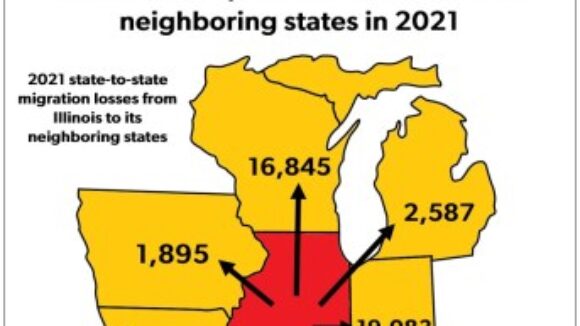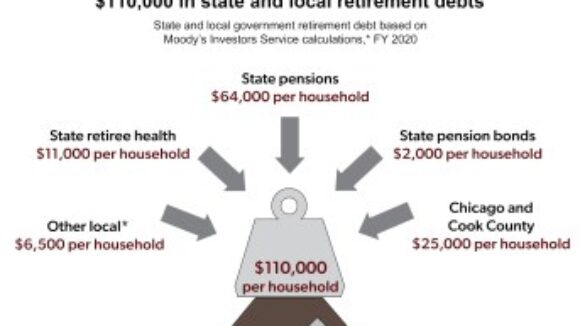At 3:00 A.M. on March 24, a Chicago Transit Authority (CTA) train crashed at O’Hare International Airport. As CBS’s Chicago affiliate reported last Friday, the crash occurred when a train on the CTA rail system’s Blue Line, which serves the western half of the city, jumped the tracks. The train then quickly “smashed into an escalator, forcing the CTA to close the O’Hare station for a week, while federal officials investigated and then CTA crews repaired the damaged platform.” Three dozen passengers and the driver were injured. (To view or read the entire CBS news report, see the link below.)
In an imperfect world, accidents are inevitable, and Chicagoans are doubtless grateful that no one was killed. On the other hand, this particular accident, which according to the National Transportation Safety Board (NTSB) caused $9.1 million in damages to the car, the station, and the tracks, almost surely would not have happened if the CTA managed its workforce in a rational way, with the aim of serving the best interests of taxpayers, commuters, and responsible employees.
Unfortunately, Illinois labor policy makes it effectively impossible for CTA officials to establish and enforce a rational set of rules for their employees. And the lack of such rules is the reason the driver who is directly responsible for the crash was still on the job March 24.
That’s because, in February, the same driver by her own admission dozed off “at the controls of a train,” and woke up only “as the train was pulling through the station.” As a consequence of her negligence in the February incident, “at least one car of the train missed the platform, but the train did not miss the stop entirely.”
Given the grave potential threat to the lives of commuters and CTA property by a driver who falls asleep at the controls of a train, the February incident should have resulted in dismissal of the employee. However, under the contract CTA officials have negotiated with Amalgamated Transit Union (ATU) bosses who wield monopoly power to speak for CTA front-line employees on matters concerning their pay, benefits, and work rules, the agency does not have the authority to fire rail operators for a single serious safety violation. To be at risk of termination, operators have to have had at least “two serious safety violations in a short period of time.”
And even though the March 24 incident obviously constitutes another serious safety violation by the driver in question, ATU bosses have gone on the record saying they will fight efforts to fire the driver even after she fell asleep at the controls of a car for a second time. ATU bosses blame the CTA for overscheduling the driver, although the records show she was off for 18 hours before the shift she was working in which the train crashed, and thus had ample opportunity to sleep. Moreover, the only reasons the driver was working as much as she did (55 hours in the seven days prior to the crash) is because union contract rules make it virtually impossible for the CTA to operate without scheduling overtime for a substantial share of employees, even though that jacks up costs for taxpayers and commuters, and the driver in question actually volunteered for overtime.
Even if Illinois law did not prohibit CTA managers from changing work rules that endanger the public and bilk taxpayers without union bosses’ acquiescence, there is no guarantee that the agency would actually make the appropriate changes. At the same time, as long as Illinois’s public-sector monopoly-bargaining policy remains entrenched, meaningful reform of the way the CTA manages its employees is almost certainly impossible.
To protect responsible public servants, taxpayers, and other citizens who rely on public services, the National Right to Work Committee has fought for decades to prevent the passage of government monopoly-bargaining laws in states that do not yet have them, and to repeal or at least narrow the scope of such laws in states where they are already on the books.
CTA Fires Operator In Blue Line Crash At O’Hare


